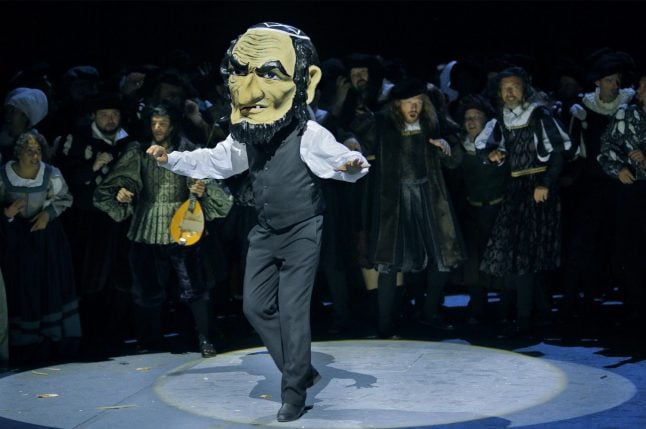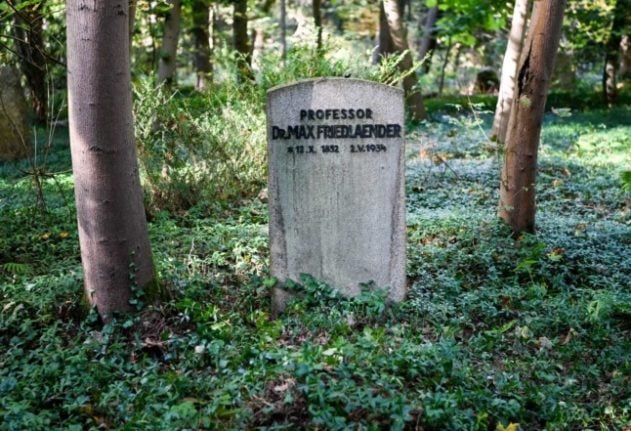An audience including German Chancellor Angela Merkel cheered the four-and-a-half-hour staging of “The Master-Singers of Nuremberg” on opening night Tuesday at Bayreuth, the festival dedicated to the works of Richard Wagner.
Critics said they were impressed with the first production ever by a Jewish director at Bayreuth, now in its 106th year, and called it chillingly relevant.
Spiegel Online said Kosky's “remarkably entertaining and convincing” staging effectively used Wagner's notorious anti-Semitism to take on “hatred of Jews in general” in today's Europe.
National daily Die Welt said Wagner's toxic ideology had always been an “elephant in the room” which Kosky had opted to make “the actual subject of his staging”.
Wagner's musical and artistic legacy from the 19th century is infused with anti-Semitism, misogyny and proto-Nazi ideas of racial purity.
His grandiose, nationalistic works were later embraced by the Third Reich, and Adolf Hitler called him his favourite composer.
Nevertheless in purely musical terms, Wagner's achievements are undeniable and his operas figure in the standard repertoire of houses around the world – apart from Israel which maintains an effective ban on public performances of his work.
The Bayreuth festival, still run by the Wagner family, long tried to separate the works from their murky origins.
But reviewers said the pairing of Kosky with one of Wagner's most iconic operas marked a bold break with that tradition.
First performed in Munich in 1868, “The Master-Singers” is essentially a hymn to the supremacy of German art.
It was one of Hitler's most-loved operas and its music was misused for propaganda purposes by the Nazis.
'Frankenstein creation'
In the production, Kosky embeds the opera's setting of Nuremberg in the city's grim 20th century history as the birthplace of the Nazi race laws, the setting of the party's giant torchlit rallies and, after the war, the scene for the trials of Hitler's henchmen.
An entire act is set in the Nuremberg Trials' wood-panelled courtroom, and a key character, the town clerk Sixtus Beckmesser, is presented as a grotesque Jewish caricature recalling Nazi smear-sheets.
“I am the first Jewish director to stage this piece in Bayreuth and as a Jew that means I can't say, as many do, that Beckmesser as a character has nothing to do with anti-Semitism,” Kosky told public broadcaster 3sat.
“Of course it does. In my opinion Beckmesser is a Frankenstein creation of everything Wagner hated – Jews, the French, the Italians and critics.”
Kosky has run Berlin's Komische Oper for five years and introduced a little-known repertoire from the turbulent 1920s and 1930s by Jewish composers later forced to flee the Nazis.
He admitted in an interview with AFP last year that he has “many contrasting emotions” about Wagner's masterpiece.
“Can you just portray the work as just being a simple fairy story, (given) the history of the piece?” he asked.
The Bayreuth festival runs to August 28th.



 Please whitelist us to continue reading.
Please whitelist us to continue reading.